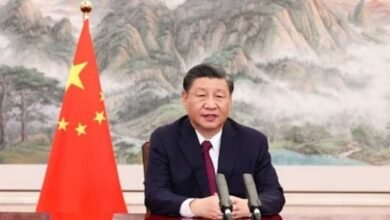U.S. Data Integrity at Risk After Trump Fires Statistics Chief, Experts Warn

Washington D.C. – Donald Trump’s recent firing of the U.S. Bureau of Labor Statistics (BLS) chief has ignited fears among economists and international observers about the future credibility of America’s economic data. The move puts the trustworthiness of U.S. reporting on the line at a critical time when reliable information on the world’s largest economy is in higher demand than ever.
The dismissal of Erika McEntarfer, whom Trump accused without evidence of being a “Biden Political Appointee” and manipulating job numbers, has raised alarms about the potential politicization of a traditionally independent federal agency. The controversy follows a recent report showing weaker-than-expected job growth and significant downward revisions.
Experts warn that such a move threatens to undermine the very foundation of economic decision-making, which relies on impartial, fact-based statistics.
“Imagine if one of your concerns is that there’s a lackey in charge of the agency and the numbers are fake,” said Michael Strain, director of economic policy studies at the conservative American Enterprise Institute. “That’s a whole other level of problems.”
The stakes are exceptionally high. Global policymakers, investors, and businesses are desperately trying to navigate the economic impacts of shifting trade policies and fluctuating inflation. Central banks have increasingly adopted “data-dependent” strategies, making the integrity of sources like the BLS paramount.
A Cautionary Tale from Global Data Crises
International examples provide a stark warning of how quickly credibility can be lost and how difficult it is to regain.
-
Argentina: After years of a previous government manipulating inflation figures in the 2000s and 2010s—a move that drew a censure from the International Monetary Fund—public skepticism remains high. “It’s logical people remember this and continue having doubts,” said Aldo Abram of the Liberty and Progress Foundation in Buenos Aires.
-
Turkey: The country has replaced the head of its statistics institute four times since 2019, leading to what Roger Mark, a fixed-income analyst at Ninety One, described as a “gradual erosion of our trust in the numbers.”
-
Greece: It took an overhaul of its statistics agency, ELSTAT, and the creation of an international oversight panel to restore faith after the agency was found to have concealed mounting deficits, a key factor in the sovereign debt crisis of the last decade.
-
China: Despite genuine efforts to improve data collection, longstanding doubts about the accuracy of official figures have persisted. Julian Evans-Pritchard of Capital Economics noted that when a new youth unemployment metric was introduced for valid methodological reasons, it was met with distrust. “Once you undermine confidence in the data, it is quite hard to restore that confidence,” he said.
The U.S. System Under Scrutiny
Compounding the issue are existing challenges in data collection, including budget cuts at statistical agencies and the declining effectiveness of phone surveys. The introduction of political pressure adds a troubling new dimension.
Enrico Giovannini, a former chief statistician for the OECD, pointed out that the U.S. system is more vulnerable to political influence than those in many other advanced economies. Unlike countries that use long, fixed-term appointments for statistics chiefs, the U.S. operates more on a “spoils system,” where a new administration can more easily replace key personnel.
The move has already drawn international condemnation. The International Statistical Institute issued a statement calling the firing a violation of U.N. principles designed to protect fact-based statistics and urged the government to restore public confidence.
For now, BLS Deputy Commissioner William Wiatrowski will serve as acting commissioner. However, the choice of a permanent successor is being watched closely as the first major test of the agency’s future independence.
Further concerns have been raised about a Trump executive order intended to fill federal posts with candidates who are “dedicated to the furtherance of American ideals.” Aaron Sojourner, a researcher at the W.E. Upjohn Institute for Employment Research, warned this could “convert many of those jobs into political jobs where people can be fired for any reason if they displease a political leader,” effectively politicizing the skilled, non-partisan workforce that underpins America’s economic reporting.





